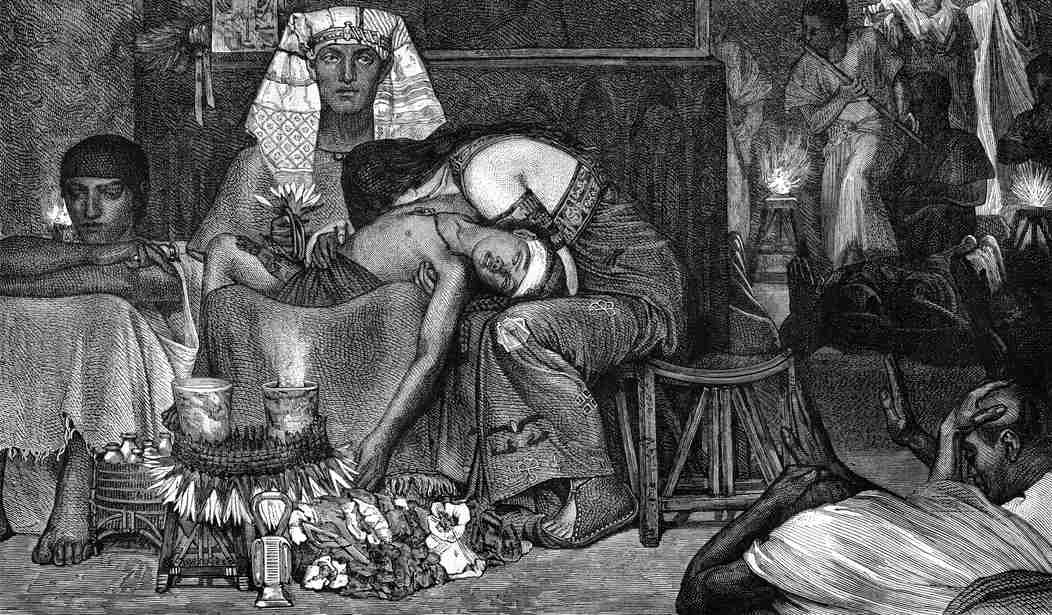Continuing a plan to get through the entire Bible in a year, follow as I journal through the reading. I have chosen a straightforward approach that begins in Genesis and ends in Revelation. This will not be an in-depth study or a comprehensive commentary. There are plenty of sources for such material. This is stage one Bible reading, taking the text at face value and sharing impressions.
Today’s reading comes from the book of Exodus, chapters 10 through 12, chronicling the final three plagues on Egypt, and Israel’s exodus. Some impressions from the text:
- “I have hardened [Pharaoh’s] heart… that you may tell in the hearing of your son and of your grandson how I have dealt harshly with the Egyptians and what signs I have done among them, that you may know that I am the Lord.” God’s purpose was not merely to make his name known among the Egyptians or the Israelites, but to make his name known among all people’s throughout time. These plagues were done to imprint God’s authority into our generational memory.
- With the pronouncement of the eighth plague, Pharaoh attempts a new tactic – bargaining. He asks who among the Israelites will go into the wilderness to worship God. Moses and Aaron tell him all will go. He attempts to dictate a compromise, saying that only the men may go. This, of course, is folly. There is no bargaining with God. Pharaoh had not learned his lesson. He had not learned his place. He had no power to leverage over the Almighty, as the swarm of locusts made clear.
- Pharaoh repeated his folly on the ninth plague, attempting once more to negotiate with Moses. It was an insincere effort, ending with Pharaoh’s pronouncement that Moses would die if ever he saw him again.
- The tenth plague, the killing of all the firstborn in Egypt, presented a noteworthy quality. On the one hand, God again made a distinction between his people Israel and the Egyptians. On the other hand, God made no distinction between the stations in Egyptian society. “… every firstborn in the land of Egypt shall die, from the firstborn of Pharaoh who sits on his throne, even to the firstborn of the slave girl who is behind the handmill, and all the firstborn of the cattle.” God was both discriminate and non-discriminate, a poetic expression of his sovereignty.
- The Lord’s Passover modeled gospel salvation. The wrath of God came in a plague to deliver death and wailing torment. Those who sheltered under the blood of the lamb would be saved. So it is today. The blood of the lamb — the blood of Christ — saves believers from the wrath they would otherwise deserve.
- Regarding the Passover, God commands: “If a stranger shall sojourn with you and would keep the Passover to the Lord, let all his males be circumcised. Then he may come near and keep it; he shall be as a native of the land.” Once again, this reiterates that God was not concerned about race. His nation was defined by abiding faith in Him, not genetics. This is something the Jews of the first century church would wrestle with. Some could not accept that God would include gentiles among his people. The apostle Paul explained that a child of Abraham was one by faith, not by blood.
Return soon as we continue our year-long journey through the text of the Bible.
Catch up on the previous entries:
Archived Genesis posts (scroll down in link).
Moses gets a mission from God. – Exodus 1-3
Believer and unbeliever, each defy God’s commandments. – Exodus 4-6
God makes his name known by plaguing Egypt.– Exodus 7-9








Join the conversation as a VIP Member